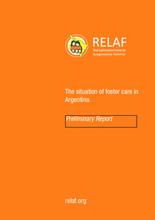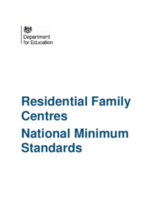Demographic Data
|
Sources: World Bank, UNDP, UNAIDS, DHS 2013 |
Displaying 12671 - 12680 of 14390
This article focuses on the structural similarities and dissimilarities that exist between child protection systems in France and Switzerland, as exemplified by the evolutions of the last decade.
The article reviews the historical development of out-of-home care in Italy and Spain and compares foster family and residential care, as well as the main research contributions to these topics in both countries.
This paper discusses the challenges of reforming the child welfare and protection systems in Hungary and Romania -two countries in transition from socialism to capitalism- and the impact on children, young people, families, and professionals. The focus is on the efforts made to deinstitutionalise children from large institutions, develop local prevention services, and develop alternatives to institutional care.
In this paper, the author argues that the response to the orphan crisis in sub-Saharan Africa has focused mainly on mobilizing and distributing material resources to households with orphans. Only a few anthropologists have interrogated the frameworks and values on which the projects for orphans are based. The paper provides an analysis of the trends in foster-care research in Africa and the author suggests that current ethnographic data on foster-care practices do not adequately reflect the changing context of fostering in that continent.
The USA-based National Child Traumatic Stress Network has recently released a second edition of the Child Welfare Trauma Training Toolkit, which is part of the Child Welfare Trauma Training course. The course assists those in the field of child welfare who wish to learn more about child welfare and trauma.
This preliminary report analyzes the practice of foster care in Argentina. The material will be useful for the development of foster care services in the Latin American region, due to the fact that the situation of foster care in Argentina can be seen as a model of the current regional context.
This document contains the UK National Minimum Standards (NMS) applicable to residential family centres.
This newsletter, translated into English, is the first of three issues produced by the “Protecting children of Moldova from family separation, violence, abuse, neglect and exploitation” project, which is implemented by Partnerships for Every Child, the Ministry of Labour, Social Protection and Family of Moldova, and the Ministry of Education of Moldova.
A series of three videos on how early experiences are built into our bodies and brains.
This study provides a new contribution to our learning about neglect by exploring the circumstances in which neglect can be catastrophic and have a fatal or seriously harmful outcome for a child. It provides a systematic analysis of neglect in serious case reviews in England, between 2003 and 2011.




